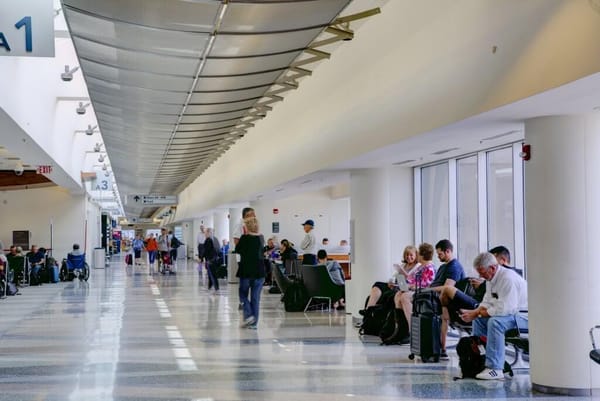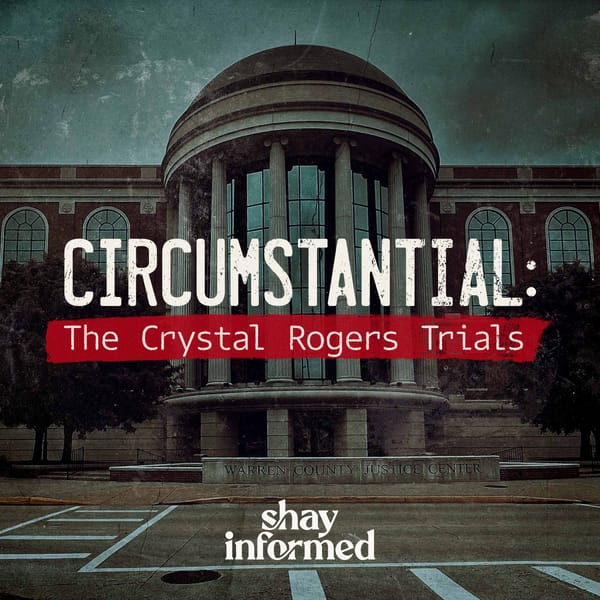Kentucky food banks prepare for biggest hunger crisis since COVID





The government shutdown is on track to become the longest shutdown in history… and the ripple effects continue to spread.
"I'm Shay McAlister, and this is Shay Informed: an independent, ad-free platform dedicated to honest journalism with compassion and clarity.
Are you new here? Sign up for the free newsletter or subscribe to support our mission.
As the federal shutdown drags on, and SNAP benefits hang in the balance, Dare to Care leaders say they cannot fill the gap on their own.
CEO Vincent James told me Friday morning he is seriously concerned about what the need will look like in the coming days, as the non-profit is already stretched thin.
In the last several weeks, James said the agency's partners- local food pantries- have seen an uptick in first-time users. When asked if this is something he thinks can be attributed to federal workers missing paychecks, he said yes.
He also said the loss of USDA funding earlier this year is just now hitting the food bank, as the money would have purchased food for this fall.
Dare to Care serves 13 counties in Kentucky and Indiana: Washington, Crawford, Harrison, Floyd, Clark, Jefferson, Oldham, Trimble, Carroll, Bullitt, Spencer, Shelby and Henry.
The non-profit gathers and buys mass quantities of food and then distributes it to local agencies such as food pantries, shelters, and emergency kitchens. The food comes from retailers, donors and government agencies. It is sorted at the Dare to Care warehouse or cooked on site, before being transported to hundreds of smaller partners.
SNAP- delivered on EBT cards- provides food assistance to about 41 million people in America. In Louisville alone, it's about $16 million worth of food subsidies every month, Vincent explained.
A recent study from Feeding America's Map the Meal Gap, estimates nearly 190,000 Kentuckiana residents are struggling with food insecurity. That was before thousands of federal workers lost their paychecks.
To receive SNAP benefits, you must be either a U.S. citizen or have a lawful immigration status, such as a green card. That's the law. Most people who receive SNAP are children, working families, seniors, veterans, and people with disabilities.
In Kentucky specifically, here are the requirements: Benefits are only available to US citizens and immigrants who meet specific legal requirements, adults between the ages of 18 and 64 who participate in work registration programs, and households with no more than $2,750 in cash and assets.
Last week, Governor Andy Beshear said he was hopeful that either the shutdown would end or the federal government would find a way to fund SNAP. Unfortunately, that hasn't happened. Now, Beshear says his administration is weighing its options.
“What we can't do, though, is we can't use the existing platform of snap and simply put state dollars through it. We've got some very clear instruction from the federal government that that is not allowed," Beshear said.
Other governors are considering state of emergencies or special sessions to help with funding, but Beshear said while he’s considering everything, he doesn't think that’s the best option for our state.
"I'm trying to be clear that we want to help in any way we can, and we're looking at all those options, but the federal government needs to step up, otherwise, we lose about $100 million in food assistance to our people, affecting about 600,000 Kentuckians," Beshear said, "So we shouldn't lessen the pressure whatsoever on Washington DC.”
Beshear was one of 25 states to file a lawsuit against President Trump this week, hoping to force the federal government to fund SNAP.
According to the lawsuit, the administration has the power to tap into emergency USDA funding and keep food aid flowing. “All Donald Trump has to do is say, I don't want people to go hungry, authorize the snap payments to go out, and our people will be okay," Beshear said Thursday.
White House staff have repeatedly denied this claim. The Trump administration has insisted that the emergency fund is reserved for emergencies such as natural disasters and does not have enough money to supply the roughly $8 billion needed for benefits next month. They have also said partially funding the program would be "disastrous" as it could lead to massive confusion with states forced to figure out how to partially distribute benefits.
During a Thursday hearing for the lawsuit, Federal Judge Indira Talwani said she was planning to issue a ruling on the matter.
“It’s hard for me to understand how this isn’t an emergency when there’s no money and a lot of people need their SNAP benefits,” Talwani said, according to reporting from Politico.
As of 10:30 a.m. on Friday, her ruling has not been made public.
On a local level, the most effective way to help people who may lose access to food stamps is to donate money to credible organizations like Dare to Care. James said, while his organization is not turning down food or volunteers, they are equipped to do a lot with a little when it comes to cash.
For example, you will spend $1.09 in the grocery store on one can of soup. But Dare to Care can feed two people with your $1 donation.
You can donate here.
If you or someone you know needs help finding access to food, you can find a list of Dare to Care partners here.
Like what you see? Learn more about Shay Informed here! This is honest journalism with compassion and clarity.








